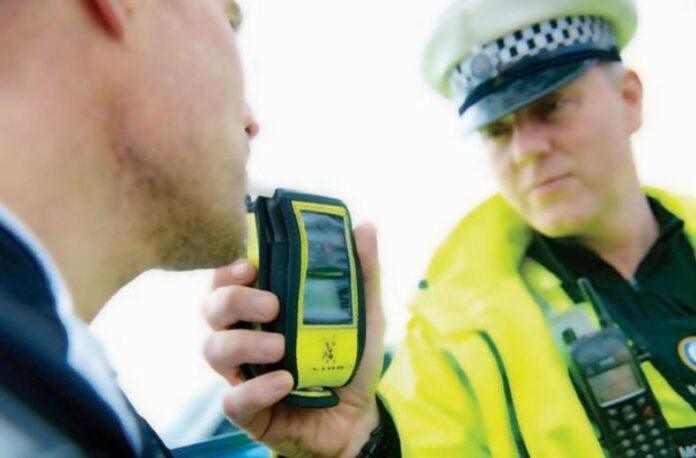Driver rehabilitation expert TTC reveals worrying lack of awareness amongst motorists and their passengers of the law relating to drink and drug driving
Key findings:
- One in ten motorists surveyed by TTC has knowingly driven after having more than the legal drink drive limit, with men more likely to do so
- 64% of respondents admit to accepting a lift from someone who has exceeded the legal drink drive limit or taken recreational drugs
- One in four motorists confess they don’t know the legal drink drive limit
- Those aged 55 and older are more likely to drive knowing they are over the legal drink drive limit
The Christmas countdown has begun in earnest, but drink and drug driving rehabilitation expert TTC is urging merry makers to be fully aware of the legal limits before they get behind the wheel of a vehicle. Findings from a TTC poll of motorists on drink and drug driving awareness are cause for concern.1 One in ten motorists confess to drink driving and a staggering 64% confirm they have knowingly accepted a lift from someone who is likely to be over the drink drive limit or taken recreational drugs.
Someone found guilty of driving whilst over the drink or drug drive limit, or who was unfit through drink or drugs, including legal drugs in their system, could face an unlimited fine, a driving ban, a community service order or even a prison sentence.
What’s more, if a passenger in that driver’s car was found guilty in a court of law of ‘aiding and abetting’, they could receive the same penalty as the driver, including being sent to prison and a disqualification from driving.
However, the highest price to pay is being involved in a driver impaired collision that harms passengers, other road users and pedestrians. Latest Department for Transport figures show fatalities from drink-drive crashes are at a 12-year high. An estimated 260 people were killed in collisions on Britain’s roads involving a driver over the alcohol limit in 2021 – the highest annual total since 2009.
Someone who has just 10mg of alcohol per 100ml of blood – well within the legal limit of 80mg alcohol per 100ml in England and Wales and 50mg in Scotland – is 46% more likely to be at fault in road collisions.2 50-80mg per 100ml multiplies a driver’s chance of being involved in a fatal collision by six times.
“Drivers are putting themselves, their passengers and other road users at serious risk every time they get behind the wheel after consuming alcohol or drugs,” Sharon Haynes, Director – Police at TTC commented. “You don’t have to be over the limit to increase your risk, but our survey results suggest drivers and passengers have a much too relaxed view of drink or drug driving. All too often this is simply due to a lack of awareness of the impact alcohol and medicinal and recreational drugs have on our senses and ability to drive safely. The findings also show drivers have little more than a vague idea of the legal implications of being caught over the limit.”
Although being aware of units per alcoholic beverage and legal drink drive limits are a must, it is extremely hard to know if someone is over the legal drink drive limit at a given time. The amount of alcohol in a person’s breath, blood or urine at the time of testing will depend on their weight, age, metabolism, the amount of food they’ve eaten and other factors.3 The only way to guarantee safety is to abstain from alcohol and drugs entirely when planning to drive that day or the following morning.
The consequences of being caught
When it comes to convictions and legal consequences of driving under the influence of drink or drugs, many respondents are hazy on the details. 41% of respondents didn’t know that a convicted drink driver may be able to reduce their driving ban by up to 25% by attending a drink drive rehabilitation course, and one in three didn’t know a prison sentence is possible, even for a first offence. 64% wrongly believed a first conviction could come with a driving ban of as little as six months. The minimum ban is actually 12 months for a first offence or three years if convicted twice in ten years. One in four people didn’t know that a drink driving conviction could impact their ability to visit other countries, and half falsely believed such a conviction was removed from your licence after six years – it can remain on the licence for up to 11 years.
Sobering up takes time not tactics
To mitigate the impact of alcohol or recreational drugs the morning after an evening out, less than half of respondents (49%) allow 24 hours to pass before driving, while 56% will drive as long as they got a good night’s sleep of seven hours. 41% make sure they drink a large glass of water before bed to rehydrate and help alleviate the inevitable hangover. One in three will have a big breakfast before getting behind the wheel, and one in five will rely on taking over the counter painkillers.
“Sobering up takes time, not tactics,” continues Sharon Haynes. “Eating a fry up and taking painkillers such as paracetamol or codeine actually delay the expulsion of alcohol from the body, not speed it up. The best form of defence is to take public transport if you must travel the next day, but better still, stay at home and sleep it off. Ultimately, those people who have an attitude of ‘it won’t happen to me’, need to understand the very real risk they pose to themselves and others whenever they drink or drug drive. Always ask yourself, is it worth it? Have NONE for the road.”
Know the facts
- The NHS recommends adults drink no more than 14 units of alcohol a week, spread across 3 days or more. That’s around 6 medium (175ml) glasses of wine, or 6 pints of 4% beer.
- In the UK if a driver is found to be over the drink-drive limit, and/or driving while impaired by alcohol, they can receive a maximum penalty of six months in prison, an unlimited fine and an automatic driving ban of at least one year.
- Drivers who have been found guilty of drink-driving and who have been banned for 12 months or more may be offered the chance to take a rehabilitation course to reduce their driving ban.
- The Police confirm: “It’s impossible to get alcohol out of your system quickly, it always takes time. A shower, a cup of coffee or other ways of ‘sobering up’ may make you feel better but won’t remove the alcohol from your system.”
- Drivers can be convicted of drug driving even if they only took prescribed medicine, so check with your doctor or pharmacist if you’re unsure.
- The Police confirm:
-
- If you are found guilty of drink driving, you will receive a criminal record
- You can be sent to prison on your first drink driving conviction
- A UK drink drive conviction may impact your ability to visit other countries
- The minimum driving ban because of a first conviction for drug or drink driving is 12 months, increasing to three years if convicted twice within ten years
- If you drive for work, your employer will see your conviction on your licence
- The Government confirms:
-
- A drink driving conviction remains on a licence for between four and 11 years
- A drug driving conviction remains on a licence for four years
- One in five people admitted they do not know the NHS guidelines on alcohol consumption
- Only 9% of respondents correctly identified the recommended units for women (14 units per week) and 17% for men (also 14 units per week)
Please click on the link below to view accompanying imagery which you are welcome to use.
Help keep news FREE for our readers
Supporting your local community newspaper/online news outlet is crucial now more than ever. If you believe in independent journalism, then consider making a valuable contribution by making a one-time or monthly donation. We operate in rural areas where providing unbiased news can be challenging. Read More About Supporting The West Wales Chronicle



























